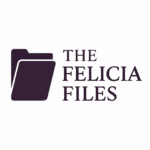
They had left their DEI roles. Trump still fired them
April 7, 2025
Bill Kristol: The High Cost of Stupidity
April 7, 2025Some of the gnarliest debates in my student newsroom were over granting anonymity and takedown requests. As staff writers and editors, we were taught to consider our duty to our readers when granting anonymity — and weigh that seriously against the risks a given source may face if named. Takedown requests, meanwhile, required a vote from our board of directors, including its student members.
Those high bars are standard in many student newsrooms. But an “unprecedented” media alert issued on Friday makes clear some of the most important national organizations in student journalism believe longstanding norms on takedown requests and anonymity must change to meet new conditions on college campuses across the country.
This alert — issued by Associated Collegiate Press, the College Media Association, the Journalism Education Association, the National Scholastic Press Association, the Quill and Scroll, and the Student Press Law Center — recommends student journalists and campus media leaders revisit their policies, “particularly for those whose immigration status may make them targets for their lawful speech,” per the SPLC.
“Recent detentions and deportations of international students by Immigration and Customs Enforcement (ICE) demand urgent and unprecedented attention from student media in the United States,” the alert reads. “News reports make clear that non-citizen student speakers, including those who have published legally protected speech in student media, have faced severe consequences, including visa revocation, detention, deportation or bans on reentry.”
The organizations issued three specific recommendations to student media:
- The organizations encourage student publications to “consider easing some of the normal restrictions you may have applied to takedown requests, allowing those identified in certain stories that may now be targeted by immigration officials to retroactively remove or alter identifying information. These are not easy editorial decisions, but these are not normal times.” And, they note that caution around publishing identifiable information isn’t limited to news stories on student publications’ websites: this applies to social media posts, too.
- For instance, “consider providing clear options for pseudonyms or ‘anonymous’ attribution for individuals, especially for non-citizens, who may produce content for student media or be quoted on sensitive topics (e.g., immigration, foreign policy, dissent).” Why: “At this moment, it is essential to hear from those most impacted by current U.S. policies. It is our duty as journalists to seek them out. Find the balance required to tell the most accurate story you can while minimizing harm.” Also: Do not promise anonymity if you cannot keep that promise, and explain your choices to your audience.
- Student journalists should “train editors and staff to understand the risks now faced by sources and non-citizen contributors if flagged by authorities.” It’s also critical to be cautious about how you document confidential information — be especially careful about storing confidential information on school resources or networks “that may be insecure or subject to administrative search.”
The recommended policy changes call to mind changes local news organizations are making to report on undocumented immigrants.
“Ethical journalism demands that we minimize harm,” the organizations write. “We have issued this alert because our organizations believe student media may fail that obligation if they continue to adhere to the traditional guidelines in light of recent developments. ICE has weaponized lawful speech and digital footprints and has forced us all to reconsider long-standing journalism norms.”
There’s a clear impetus for this historic change in guidance, which the organizations directly acknowledge: the detention of Rümeysa Öztürk, “a Turkish national whose only demonstrated offense was co-authoring an opinion piece published in her student newspaper,” The Tufts Daily.
The Tufts Daily, for its part, responded to Öztürk’s detainment by standing up for the First Amendment. On Friday, it published an anonymous op-ed by a friend of Öztürk’s. “By publishing this op-ed anonymously,” the Daily noted, “we hope to provide a unique perspective that is important to our readership.”
The Student Press Law Center’s free Legal Hotline for student journalists and educators has seen “a flood of anxious questions from college and high school journalists,” according to the SPLC’s statement. Calls to the hotline this March were up 39% compared to March 2024.
“I have been working at the Student Press Law Center for more than three decades, and I am now warning student journalists about things I have never had to tell them before,” SPLC senior legal counsel Mike Hiestand said in the statement. “Student speech that is, or should be, fully protected by the law is now being weaponized by the U.S. government and student media must adapt to continue to fully report on their communities.”
The alert is a significant break from precedent for the participating organizations.
“Many of our organizations have existed for a century or more, and we have never before issued this type of alert,” the organizations write. “We do not do so lightly now. In fact, what we are suggesting today stands in opposition to how many of us as journalism educators have taught and advised our students over the years. But times have changed and we feel we must respond to the moment.”
You can find the full statement, which includes resources for student journalists to aid with decision-making related to these recommendations, here.
Great Job Sophie Culpepper & the Team @ Nieman Lab Source link for sharing this story.








